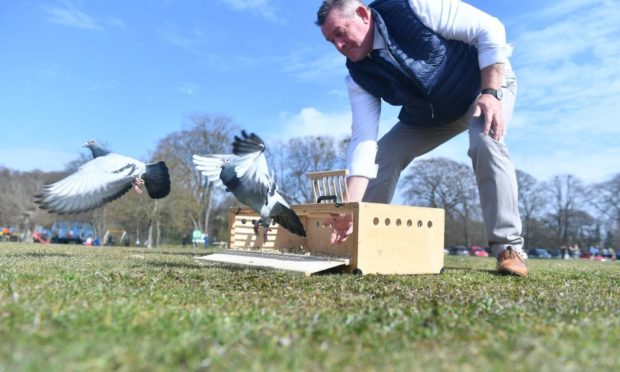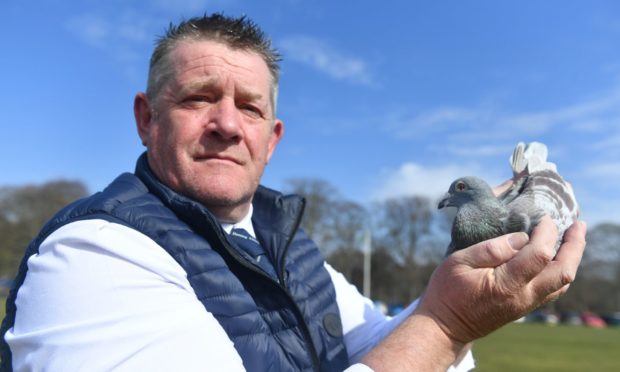A north-east pigeon racer fears that changes brought about by Brexit could be final the nail in the coffin for his beloved sport, with many in his club considering giving up.
Representatives at the Royal Pigeon Racing Association are fighting for the UK Government to intercede on their behalf after the French Government recently began quarantining birds from the UK for three weeks before they are able to race.
The new regulations have ruffled more than a few feathers within the community and have led to many pigeon racers contacting their local MP pleading for help.
Talks are ongoing between the two governments and fanciers expect an answer as to why their birds are subject to the newest round of stipulations from the country by next week.
‘This can only be a result of Brexit’
Many, including Aberdonian Scott Robertson, believe the tumultuous situation boils down to one thing – Brexit.
Mr Robertson keeps more than 80 racing pigeons at his home lofts and recently took part in a nationwide release of the birds on the day of Prince Philip’s funeral as a tribute to the Duke of Edinburgh, who was a fan of pigeon racing.
He said: “Pigeons from Ireland are still permitted to fly from France, but birds from Scotland, England, Wales and Northern Ireland aren’t.
“All of the birds are vaccinated so for me this can only be as a result of Brexit.
“I know a lot of the racers down south send their birds to France to prepare them for long distances and feel these changes could stop them carrying on our sport.”
Fears keeping birds caged for weeks would erode their fitness to race
Some of the pursuit’s most important races are to areas of France, such as to Flanders Field, where many pigeon racers use the trip to pay their respects to soldiers who died on the World War I battlefield.
Under EU rules that came into law last week, UK birds must be detained for three weeks and a note from a vet must be secured before they can be released in France for trans-Channel races.
It has prompted some pigeon owners to claim that the birds would be unfit to compete after being caged for such a period, not to mention the added financial repercussions.
Racers dedicate years to training their pedigree birds.
With time, effort and a considerable amount of money, the pigeons can be raised into racing machines, capable of travelling hundreds of miles at a time and reaching speeds of 60mph.
Just last year a female racing pigeon was sold for more than £1.4 million.
And, with that in mind, many pigeon racers take their birds abroad to prepare them for long-distance races.
However, the restrictions imposed by French authorities have forced many trainers to reconsider if the sport is worth continuing.
‘The change is too much for some of them’
Mr Robertson added: “It isn’t really a sport that people just get into, it’s something that is passed down from father to son and, because of that, a lot of the club’s members are into their 70’s or 80’s.
“The change is too much for some of them. In respect to this, the birds would lose all their fitness and it would be very costly for people.
“The birds need constant care and training to keep in their prime.”
In an effort to continue training their birds and keep the tradition alive, birds have had to be sent to either end of the UK to simulate the distances they would normally cover from France.
The Department of Food and Rural Areas (Defra) have also compiled a report on the risk the birds spreading avian influenza to overseas communities.
In the report published earlier this month it was determined that “a medium risk level would be applicable for countries such as Belgium, Germany and the Netherlands, where wild bird cases are high and reports are frequent”.
It added: “For other regions, the risk is considered low, for example in southern Europe
(e.g southern France and Spain) where cases in wild birds are low and infrequent.”

